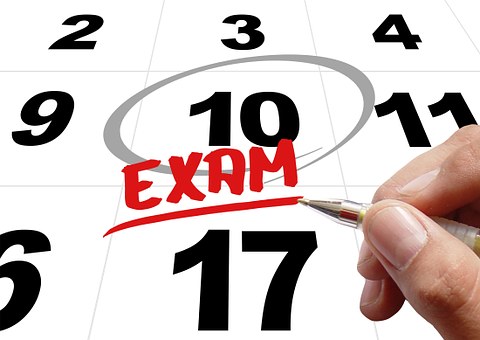By Alison Monahan
Many law students imagine a world in which he or she can be organized, prepared, and building toward exam-ready status throughout the entire semester. Due to work loads, case briefing, copious reading, and all the other competing interests law students juggle, most students are lucky if they can get a solid week of dedicated study right before exams. There are steps one can take to start the exam prep process earlier in the semester and make the final push less stressful and more productive.
Review and Integrate
Taking notes during lectures is a great way to capture the topics and issues that the professor emphasized and presumably thinks are important. However, if you never look at those notes again, or only review them in the waning hours before an exam, they aren’t going to help you score the A on that exam.
A better option (which takes a lot of dedication and commitment) is to spend some time each week, reviewing notes. Some do it just after class, others try to do it at the end of the week or over the weekend. Others review them at some other meaningful interval. Going back over the notes gives you an opportunity to understand the information more fully and hopefully retain the nuances.
Once you have reviewed and “cleaned up” your notes, spend time integrating the information into the outline you started at the beginning of the semester. In this way you continue to build that final review outline and continuously reinforce the concepts and legal principals you are learning in class and from your readings.
What Type of Learner Are YOU?
It is critical that you engage in study habits and practices that work for you. It makes absolutely no difference what worked for that 3L student that likes to extoll the virtues of his or her way of studying for a class, if it doesn’t suit your style of learning. There are several learning styles and there are assessments that can help you determine your learning style.
By the time you get to law school, you probably have a good idea of what works for you. That said, studying in law school is not the same as it was in your undergraduate, or even graduate, program. Try out a few things and see what works best for you. A little time investment in the beginning will help save you a lot of wasted time down the road, and hopefully, allow you to become an efficient legal studies machine.
Be wary of advice from other students. Something they say or provide could be helpful, but you need to understand your own strengths and weaknesses when it comes to studying.
Study Groups?
When I was in law school, I avoided study groups like the plague. My experience had been that of wasted time, lots of socializing, varying levels of commitment, and little benefit. My experience was my own, and many love study groups. That said, there were two very bright law school colleagues with whom I studied and that benefitted me.
What was different? We didn’t study together throughout the semester. We did all our work and prep throughout the semester independently and only came together in the last few days before exams. We each brought a significant amount of work and knowledge to the study sessions, and each benefitted from the efforts of the other members. Generally, these sessions were intense review sessions complete with diagramming, dry-erase board sessions, and snacks.
I benefitted so much from these sessions, because I was not learning the material for the first time; rather, I was refining and tweaking the knowledge I had gained on my own. I think that these sessions were mutually beneficial but finding this “study group” took care and discernment, and we were not shy about keeping the group fiercely exclusive. Take study session with other people seriously, and don’t waste your precious time with those who don’t.
Final Intense Review in the Final Push
For me, there was a lot of value in refreshing and reviewing in the last day or so before the exam. I love flashcards and outlines; however, by the time I got to the last day or so before the exam, I had reduced my number of cards and pages dramatically. I might only have 10-20 flashcards with particularly elusive legal concepts on them, or maybe a few overview cards. If I used an outline, it was less than five pages. Just enough to keep all the connections fresh in my brain. These tools were the output of my semester of note taking, outline integration, final-push group study sessions, and hard work generally.
It isn’t Easy
In the end, there is no silver bullet. There is fool-proof trick to allow you to absorb all the information you need to succeed on your law school exams. However, there are things that you can do along the way, all of which require a lot of discipline and commitment, that will help you be successful on exams. Countless have come before you and succeeded. You can do it too.
Alison Monahan is the founder of The Girl’s Guide to Law School®, which is a leading resource for women (and some men) embarking on a legal career. Alison is also a co-founder of the Law School Toolbox® and Bar Exam Toolbox® which provide free resources, tutoring and a variety of courses and tools to help law students and bar exam takers succeed with less stress and anxiety.


